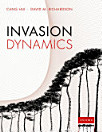Invading Ecological Networks
2022년 1월 · Cambridge University Press
eBook
456
페이지
report검증되지 않은 평점과 리뷰입니다. 자세히 알아보기
eBook 정보
Until now, biological invasions have been conceptualised and studied mainly as a linear process: from introduction to establishment to spread. This volume charts a new course for the field, drawing on key developments in network ecology and complexity science. It defines an agenda for Invasion Science 2.0 by providing new framings and classification of research topics and by offering tentative solutions to vexing problems. In particular, it conceptualises a transformative ecosystem as an open adaptive network with critical transitions and turnover, with resident species heuristically learning and fine-tuning their niches and roles in a multiplayer eco-evolutionary game. It erects signposts pertaining to network interactions, structures, stability, dynamics, scaling, and invasibility. It is not a recipe book or a road map, but an atlas of possibilities: a 'hitchhiker's guide'.
저자 정보
Cang Hui is a Professor of Mathematical Biology and holds the South African Research Chair in Mathematical and Theoretical Physical Biosciences at Stellenbosch University. He is a trustee of the International Initiative for Theoretical Ecology. He has published widely on biological invasions and ecological networks.
David M. Richardson is Director of the Centre for Invasion Biology at Stellenbosch University. He is a member of the Species Survival Specialist Group on Invasive Organisms for the International Union for Conservation of Nature. His main expertise is in invasion ecology, and particularly alien tree invasions. He has published extensively on invasive species and restoration ecology.
이 eBook 평가
의견을 알려주세요.
읽기 정보
스마트폰 및 태블릿
노트북 및 컴퓨터
컴퓨터의 웹브라우저를 사용하여 Google Play에서 구매한 오디오북을 들을 수 있습니다.
eReader 및 기타 기기
Kobo eReader 등의 eBook 리더기에서 읽으려면 파일을 다운로드하여 기기로 전송해야 합니다. 지원되는 eBook 리더기로 파일을 전송하려면 고객센터에서 자세한 안내를 따르세요.





